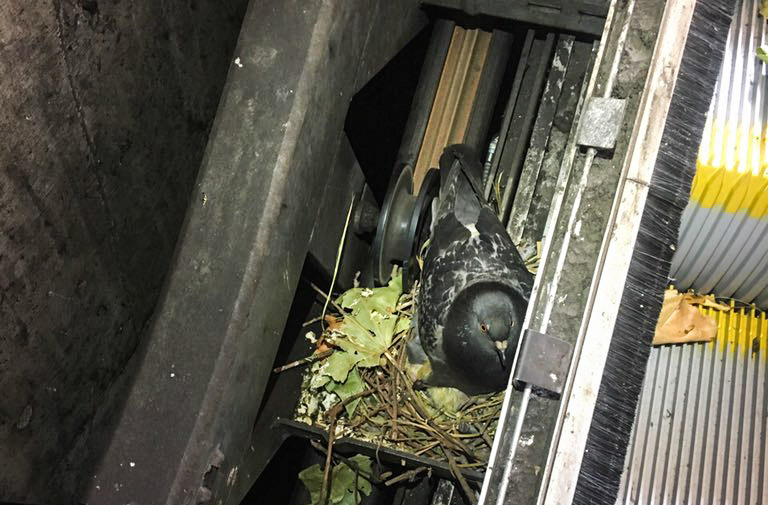We've heard of all sorts of reasons for service or projects at BART getting slowed down or postponed — everything from people trying to walk through the Transbay Tube to trees falling on tracks to hard-to-trace electrical gremlins.
And BART's escalators have had a reputation for breakdowns and long drawn-out repairs for reasons ranging from station patrons doing rude, unspeakably filthy things to a lack of available parts for the aging equipment.
But here's something new: BART says that an escalator upgrade at its 24th/Mission Station has been delayed for more than a month by a family of pigeons — pigeons! — that took up housekeeping right in the middle of the moving stairway's mechanical works.
The pigeon-prompted postponement came to this news organization's attention via a brief exchange on Twitter.
A patron tweeted the agency during the Monday morning commute, asking why the escalator at the northeast corner of the station remained closed a week after it was due to be replaced and back in service.

